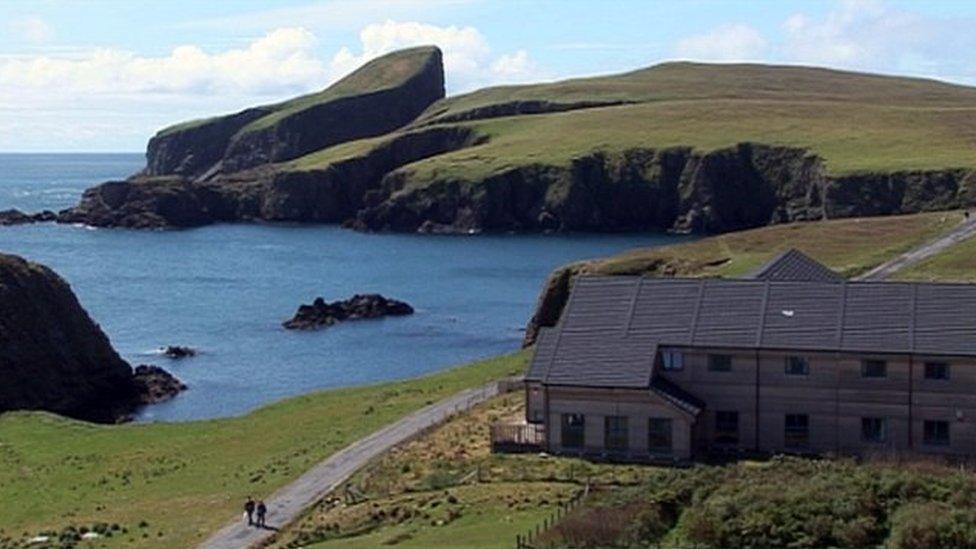Covid: Every adult is vaccinated in Fair Isle, the UK's remotest island community
- Published
Fair Isle is the UK's most remote inhabited island
It may be one of the UK's most remote communities but tiny Fair Isle - with a population of just 48 people - can now claim to be one of the safest.
The Scottish island - located between Orkney and Shetland - is famed for its knitwear and migratory birds.
It only got a reliable 24-hour-a-day electricity supply in 2018.
This week, vials of AstraZeneca vaccine were flown in on a small plane, meaning every adult on the island was able to have their second dose.
It was a practical solution to a tricky problem.
The logistics of vaccinating the furthest-flung communities along the edges of Scotland were challenging, to say the least.

Fair Isle is three miles long and one-and-a-half miles wide
The first vaccine, from Pfizer, required storage temperatures so low that the tiny planes and boats serving these islands were out of the question.
For a fragile community, many of whom are older, bringing people out individually to the mainland clinic did not make sense either.
However, the AstraZeneca vaccine can be transported in a cool box.
So that is exactly what NHS Shetland has done, sending the vials in on the tiny planes that run lifeline services to its smaller isles.
The island is three miles long and one-and-a-half miles wide.
When the plane touched down on the rubble airstrip near Fair Isle's 600ft cliffs the sun was shining - the first glimpse of spring after relentless weeks of sleet, snow and gales.
The rather unassuming white box was loaded carefully into the nurse's car, and taken down to the small surgery, where nurses Kirstin Robson and Margaret Cooper got ready to vaccinate Fair Isle.
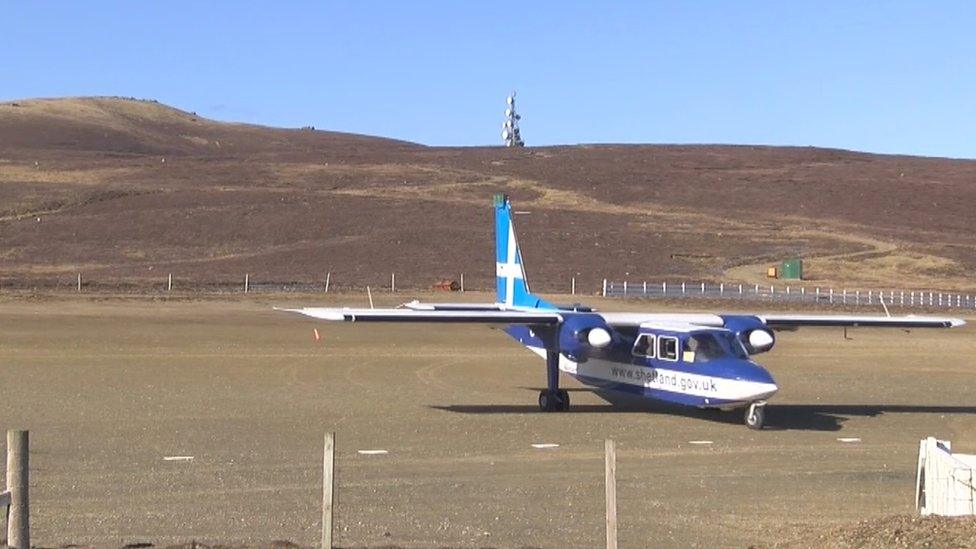
Vaccine supplies were flown in this week
John Best, the oldest islander, joked with the nurse as he rolled up his sleeve.
He said the island feels like "one of the safest places in the country" - not only fully vaccinated, but cut off from the threat of infection, with almost no visitors allowed in.
"It's a funny thing", he said, "because this was a very welcoming island. And it will be again.
"But it's an element we haven't had for about a year now."


In normal times, Fair Isle defies the clichés associated with it - "wild", "isolated" - and is in fact an intensely sociable place, famous for music, dancing, and a warm welcome.
The islanders are keen to return to those days.
David Parnaby has lived here for 10 years, and his two young children make up half the school roll.
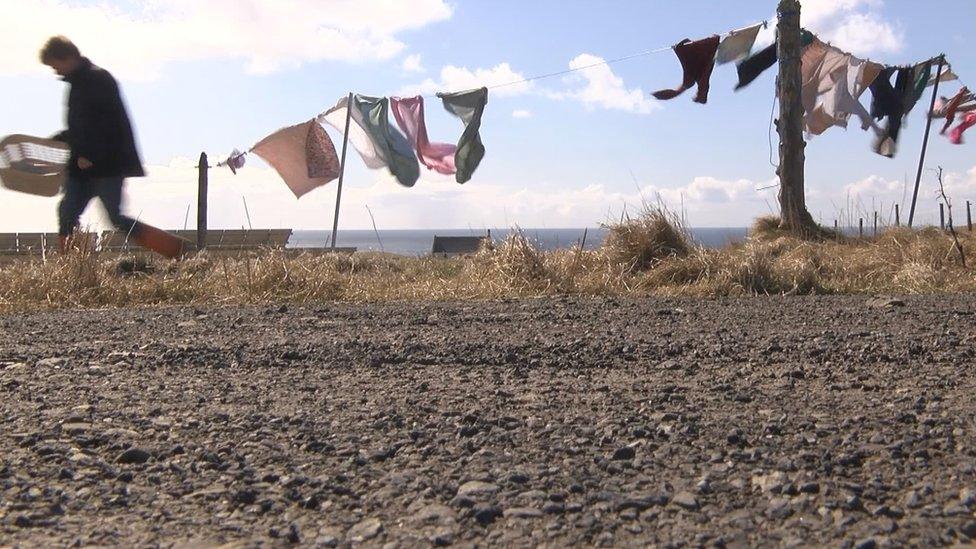
Wind is rarely in short supply in exposed Fair Isle, which can come in handy
He readily admits there is "no better place" to spend lockdown than Fair Isle, with its stunning scenery and nature - but adds that with no pubs or cafes, social life here is heavily dependent on the kind of household visits that have been banned.
'Gives more confidence'
There is real hope, though, that this second vaccine dose will allow a loosening of restrictions.
"We've been really impressed at the way the NHS has handled it, getting everybody done," he said.
"It just gives the whole isle a wee bit more confidence as we start, hopefully, to get back towards normal life here on Fair Isle."
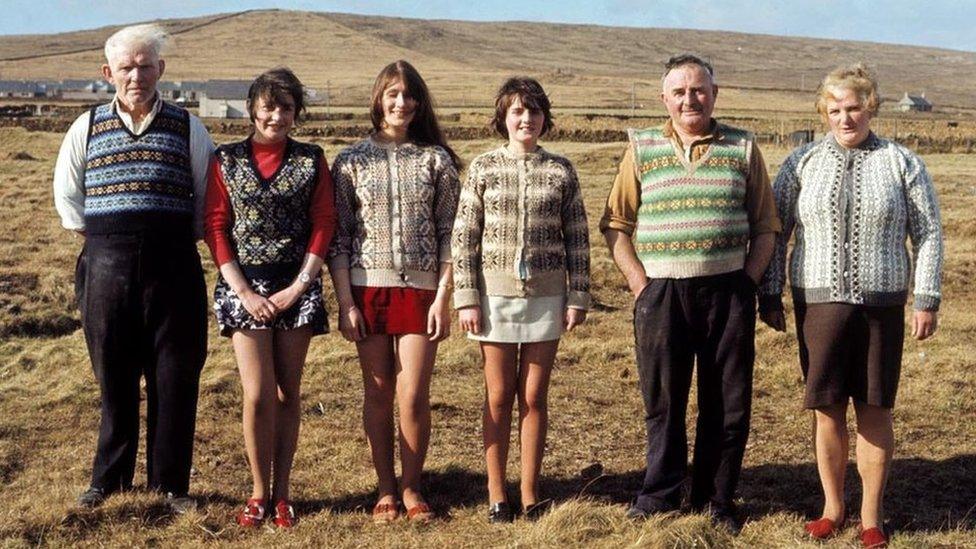
Fair Isle knitwear, shown in this photo from the 1970s, is famed around the world
Other remote islands have been vaccinated in this way - some in the Hebrides, along with Shetland's Foula and Skerries.
"Fair Isle was one of those areas in the UK where there were no confirmed cases, so we thought it was important to maintain that as a statistic," explained interim director of community health and social care, Brian Chittick.
'Peace of mind'
"We're lucky", Thomas Fisher said, as he waited his turn outside the surgery.
He had a bad reaction to the first dose, but is not complaining.
His partner Marie Bruhat agreed, but wanted to stress how vulnerable Fair Isle has been during the pandemic.
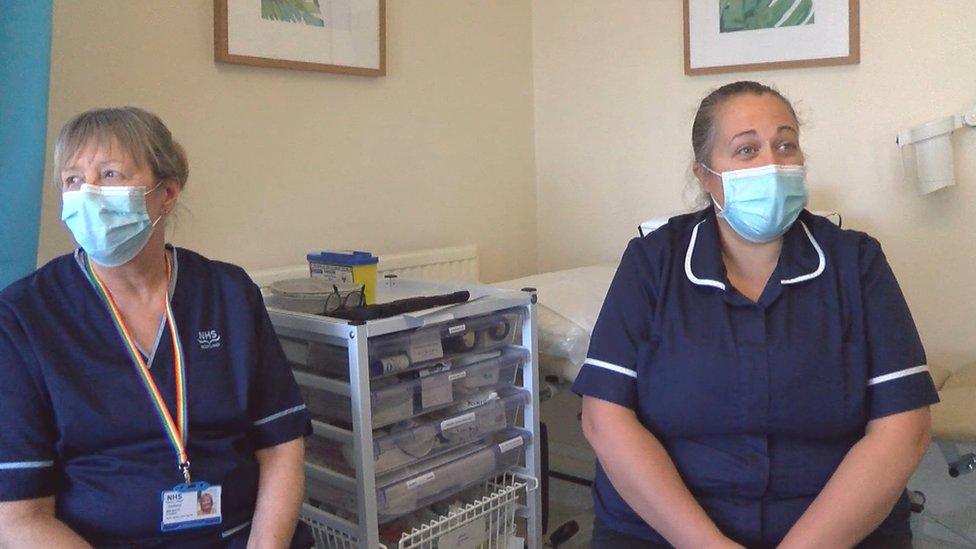
The vaccinations took the nurses just a morning
"If someone had it, it would spread so quickly," she said. "So knowing that everyone will be covered - to a degree - is going to give more peace of mind."
Vaccinating all of Fair Isle took just a morning. As nurse Kirstin packed up, she reflected on what surely counts as a good day in the life of an island nurse.
"It's been great - after 10 days without a boat we've now got a full shop, the sun is out, the lambs are coming," she grinned.
Better times ahead, then? "Absolutely. Definitely".


Related topics
- Published19 February 2020
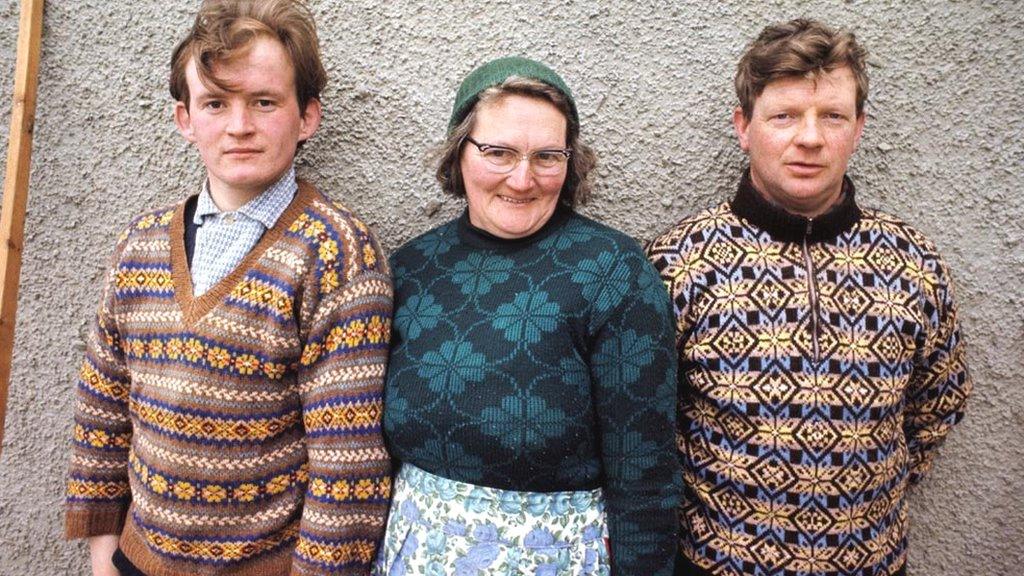
- Published12 October 2018
